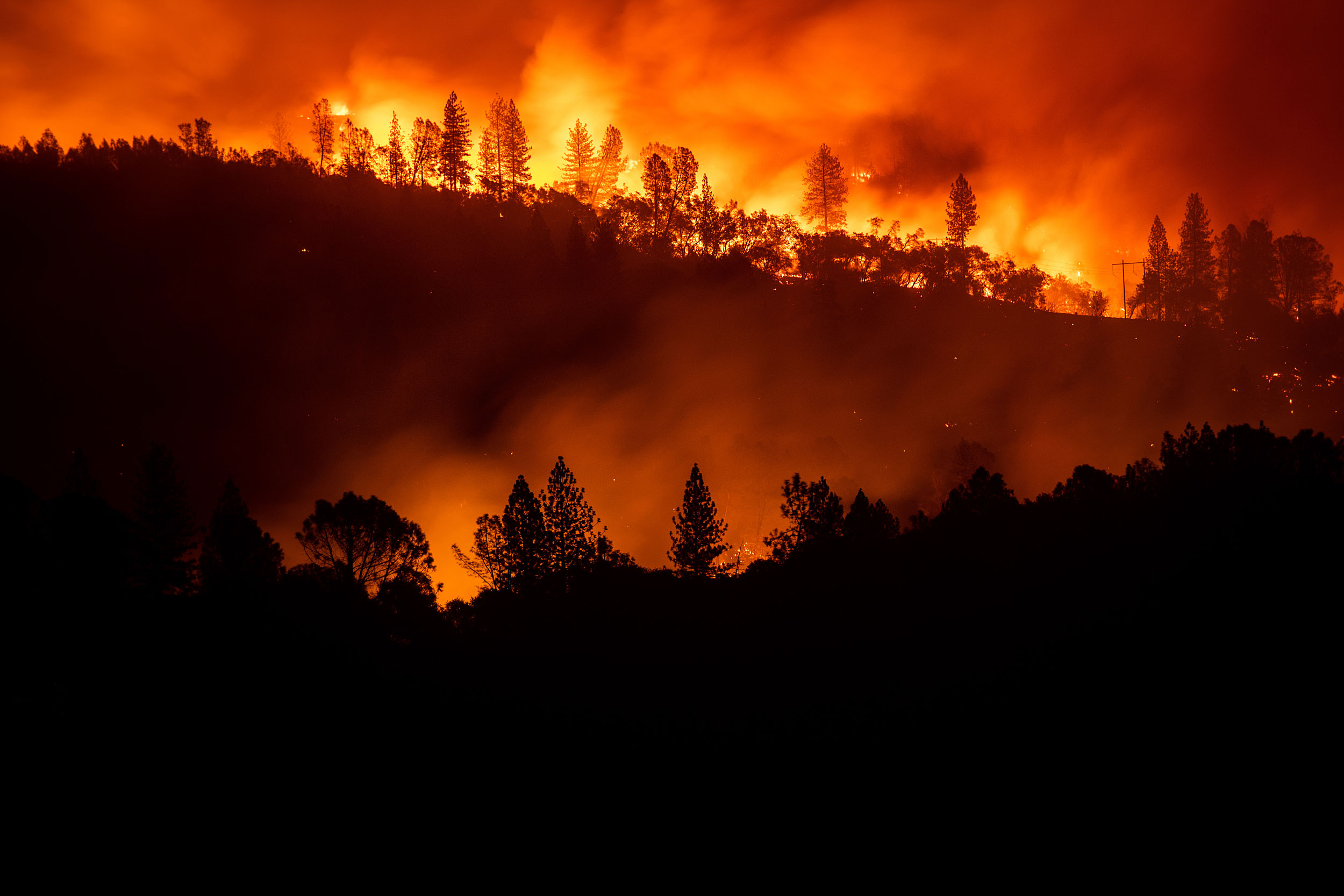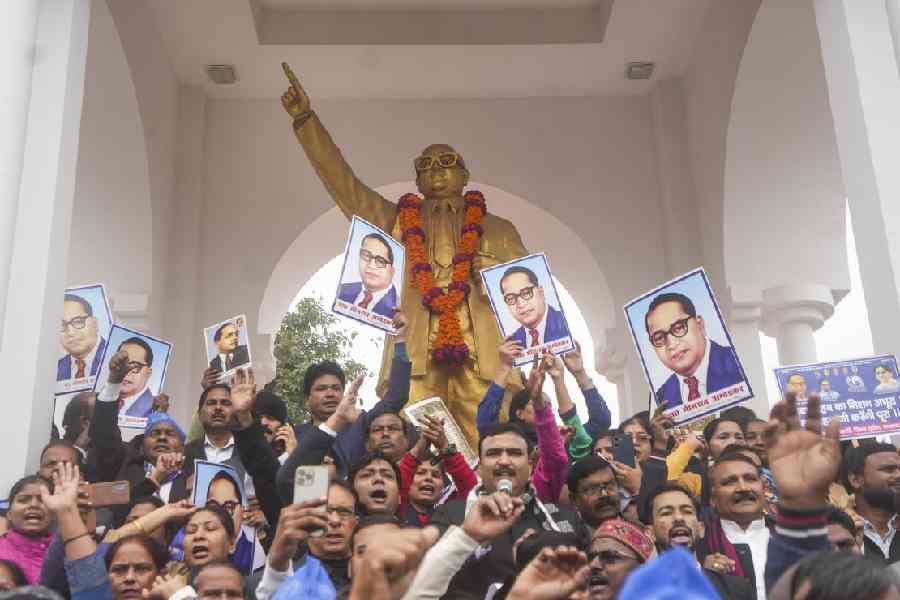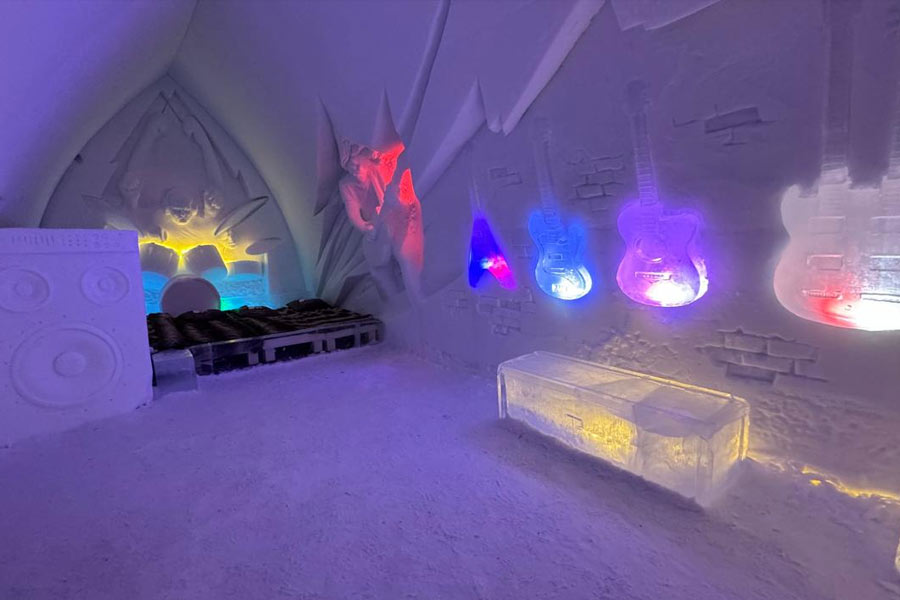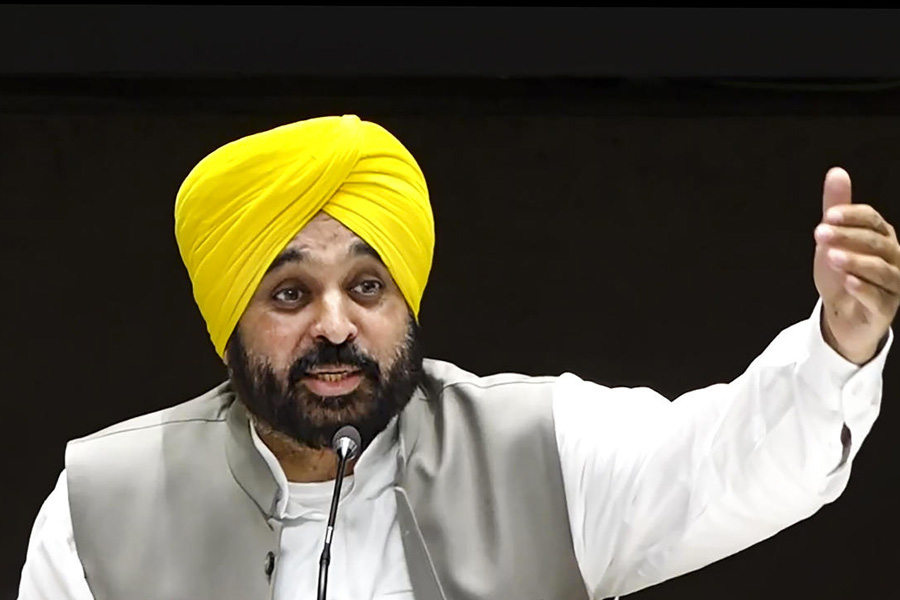Rex Stewart was broke when he landed in Paradise, California, more than 40 years ago. But he found work as a carpenter, helping build parts of this mostly modest town of retirees and commuters tucked away in the Sierra Nevada foothills.
On Saturday, after escaping what is now the most destructive and one of the deadliest fires in California history, he stood outside an evacuation shelter with no more to his name than the coat he had on and a winter cap with a peace symbol on it.
“Paradise is gone,” Stewart, 66, said, pulling on a cigarette. “There’s nothing to go back to.”
Fires continue to rage on both ends of California, spreading with breakneck speed and displacing hundreds of thousands of people in a state where a once-seasonal worry has become a near-constant terror. At least 23 are dead in the so-called Camp Fire, about 160km north of Sacramento, and two others have died in fires near Los Angeles.
With the discovery of 14 more bodies on Saturday, the Camp Fire surpassed the death toll in last year’s Tubbs Fire, which killed 22 people and was the third-deadliest fire in the state’s history until now. The deadliest, the Griffith Park fire in 1933, killed 29 people.
Many people in the area affected by the Camp Fire remained unaccounted for, and Sheriff Kory L. Honea of Butte County said officials were expanding the team of people tasked with searching for bodies.
Wildfires are fickle pillagers, pivoting to spare one thing and destroy another, twisted by wind and the fuels they feed on. Fire prevention authorities routinely drum the words “perimeter defence” into residents’ minds in this part of California. Keep trees trimmed and burnable things far from home, and fire’s danger diminishes.
But the fires that erupted this week did not follow those rules. And Paradise, in Butte County just east of the city of Chico, bore the brunt of the devastation. In what fire officials said was an unstoppable storm-front fire, beginning early on Thursday morning, the Camp Fire has exploded across 105,000 acres and destroyed more than 6,700 homes and commercial buildings.
Paradise, home to about 26,000 people, was shrouded in smoke on Sunday. Flames still licked downed power poles, and ghostly chimneys jutted up from charred concrete foundations. Evidence of the chaos of escape lined the road out of town, in the charred frames of cars and trucks that were abandoned midescape. Some cars had crashed into one another as flames roared on both sides of the road. At least seven people died in their vehicles, overcome by the inferno, authorities said.
Jackie Gayle, 73, was riding down out of Paradise as vehicles were burning.
“There was a motor home on fire and we had to sit there by it until we were waved on to go,” she said. “You could feel that heat coming through the glass.”
At Adventist Health Feather River hospital, which Stewart said he had helped build, a helicopter pad was filled with the remainders of an evacuation this week. Wheelchairs and beds, lab equipment and saline bags still hanging on their hooks sat jammed on the concrete pad, which was surrounded by a moat of rocks to keep the flames at bay. Portions of the hospital escaped destruction and became a shelter for some people who huddled in a basement as the fire came through.
The Camp Fire is not over. Only 20 per cent contained, it still threatens other communities, including the edges of Chico, the biggest city in Butte County and the evacuation destination for many Paradise residents, like Stewart.
For James Betts, another Paradise resident, the miracle of escape has given way to the losses he knows he will face back home. Betts, a 33-year-old groundskeeper at a tree nursery, had tried to get out on foot on the morning of the fire. He does not own a car, and none of the seven people with him, including a nephew and his pregnant girlfriend, did either.
A man in a pickup truck, known to none of them — Betts never even learned his name — pulled up and shouted for them to climb into the bed of the truck. And so they all made it.
“It’s kind of hard when you don’t have a town to go back to,” Betts said. “When you’ve been raised in the mountains your whole life, it’s always your retreat.”
A spokesperson for the Camp Fire command said winds, which died down on Saturday, were expected to pick back up Saturday night into Sunday.
President Donald Trump weighed in on the fires on Saturday, saying he would withhold federal funds from the state.
“There is no reason for these massive, deadly and costly forest fires in California except that forest management is so poor,” Trump said on Twitter. “Billions of dollars are given each year, with so many lives lost, all because of gross mismanagement of the forests. Remedy now, or no more Fed payments!”
The comments drew outrage from local leaders and firefighters’ organisations.
“At this moment, thousands of our brother and sister firefighters are putting their lives on the line to protect the lives and property of thousands,” said Brian Rice, the president of the California Professional Firefighters, which represents more than 30,000 firefighters and paramedics. “Some of them are doing so even as their own homes lay in ruins.”
One of two major fires in Southern California, called the Woolsey, has also surged to about 83,000 acres, forcing the evacuation of about 250,000 people, according to state officials. It was 5 per cent contained as of Saturday night. Fire crews in Ventura and Los Angeles Counties were fighting on steep terrain that made controlling the blaze difficult.
“Our firefighters have been experiencing some extreme, tough fire conditions that they said they’ve never seen in their life,” said Daryl Osby, the chief of the Los Angeles County Fire Department. “We just ended the hottest summer on record. We have fuels that are in critical drought state right now. This is the sixth year of seven years of drought in this region.”
Osby said that winds were expected to pick up on Sunday and last through Tuesday, further complicating firefighting efforts in the region, and that they currently had no timeline for lifting evacuation orders or opening Highway 101, one of the region’s major thruways.











